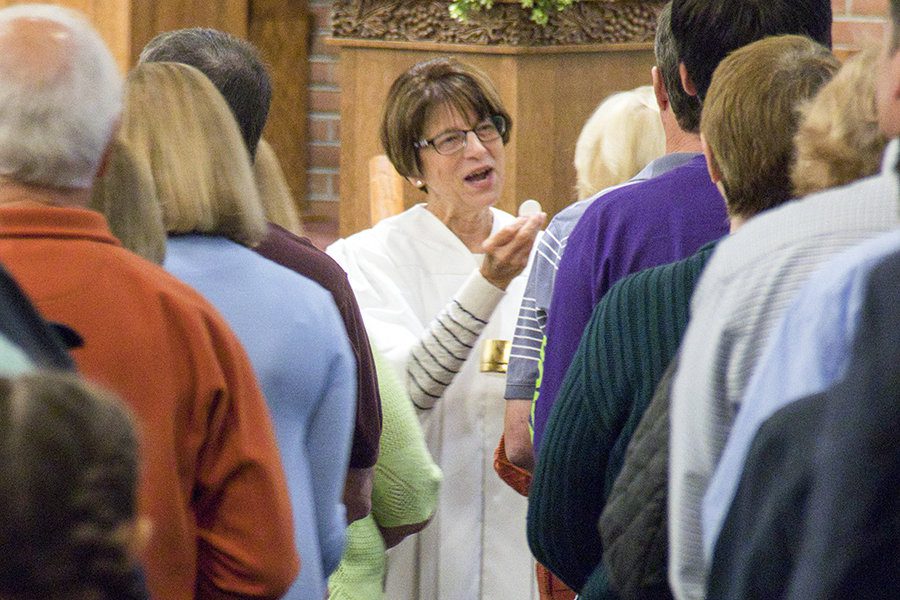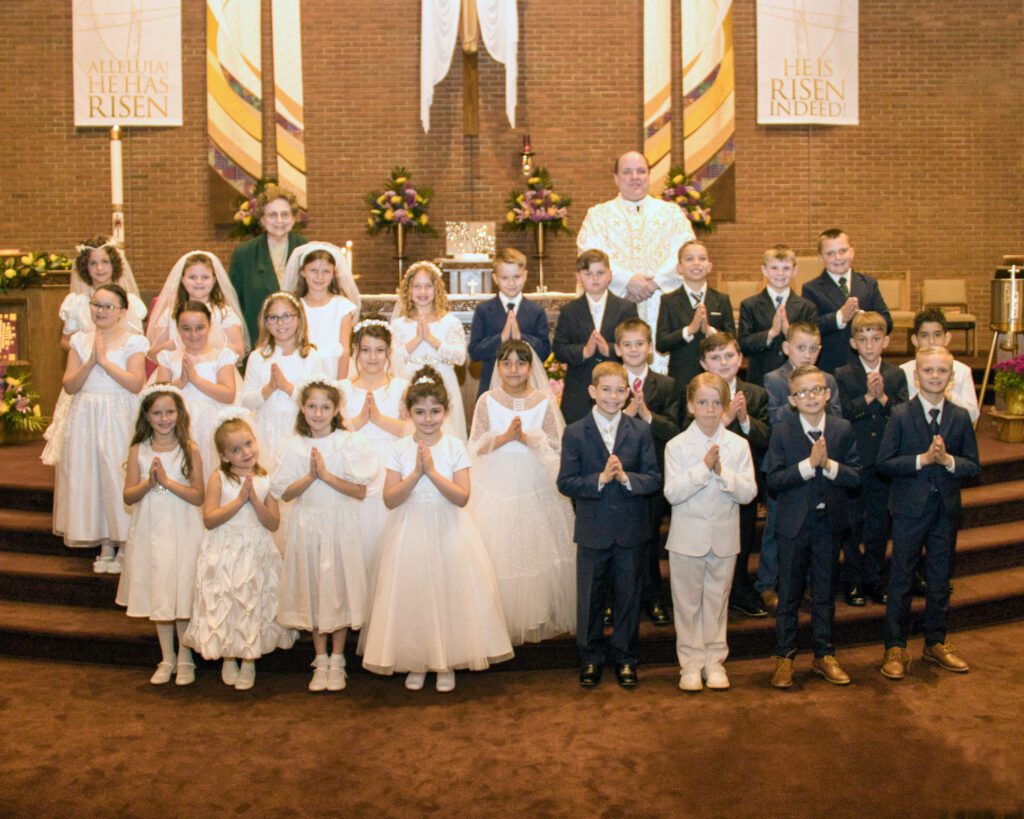“Jesus said: ‘I am the living bread that came down from heaven; if anyone eats of this bread, he will live forever; he who eats my flesh and drinks my blood has eternal life and… abides in me, and I in him.” (John 6: 51, 54, 56.).
In the celebration of the Eucharist, bread and wine become the Body and Blood of Jesus Christ through the power of the Holy Spirit and the instrumentality of the priest. The whole Christ is truly present — body, blood, soul, and divinity — under the appearances of bread and wine, the glorified Christ who rose from the dead. This is what the Church means when she speaks of the “Real Presence” of Christ in the Eucharist.
As a Sacrament, we believe that Holy Communion is really and truly the Body, Blood, Soul, and Divinity of Jesus Christ. The appearance of bread and wine remains, but the essence is changed into the Lord Jesus. During Mass, bread and wine are consecrated by the priest, through the power of God, when he repeats Jesus’ words, “This is my Body; this is My Blood.”
The Holy Eucharist is both a Sacrifice and a Sacrament. We normally call the Sacrifice “the Mass” and the Sacrament “Holy Communion.”
As the Sacrifice, Jesus offers Himself to the Father in an unbloody manner and we unite ourselves to Jesus in this offering. By doing this, the Father accepts the gift of us.


As the Catechism of the Catholic Church states in #2181: “The Sunday Eucharist is the foundation and confirmation of all Christian practice. For this reason the faithful are obliged to participate in the Eucharist on days of obligation, unless excused for a serious reason (for example, illness, the care of infants) or dispensed by their own pastor. Those who deliberately fail in this obligation commit a grave sin.”
To receive Holy Communion worthily, one should be free from serious sin and fast from food for one hour before the actual reception of Holy Communion. At the time of Communion, if we are unable to receive the Eucharist sacramentally, we should unite ourselves spiritually with the Lord and with those who are able to receive.
The Eucharist is the sign of unity. There is great pain in the world among people of the Christian faith because of the separation of the Churches. Because Communion is a sign of unity and since this unity does not yet exist, Catholics may not receive Communion in a Protestant Church nor may Protestants receive Communion in the Catholic Church. Special guidelines exist for the Orthodox. We pray that someday there may be one Church. That is the will of Jesus Christ.


